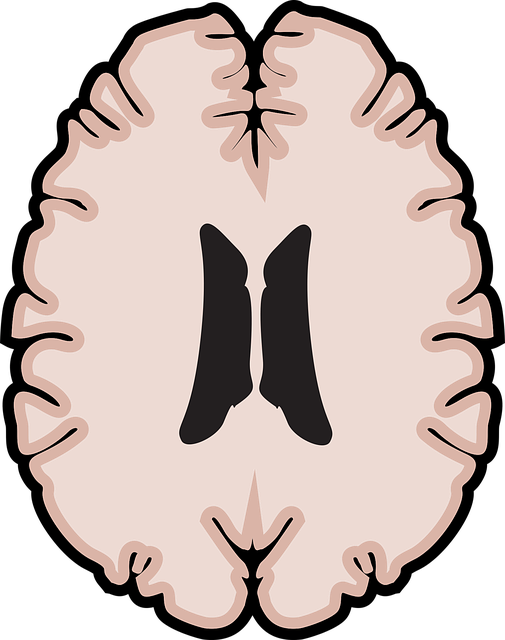Emotional intelligence (EQ) is a powerful tool for maintaining mental health and well-being, with research showing high EQ correlates with reduced stress, anxiety, and depression. Golden Depression Therapy offers a unique approach to enhancing EQ by addressing deep-seated emotional challenges, improving emotional awareness, regulation, and conflict resolution skills. Public awareness campaigns and education can significantly reduce anxiety and promote self-care practices through recognizing emotions. Developing self-awareness and empathy, key components of Golden Depression Therapy, are essential for navigating challenging situations effectively, fostering resilience, and enhancing overall mental wellness.
Emotional intelligence (EQ) is a powerful tool for navigating life’s challenges, especially in managing mental health. This article delves into the profound impact of EQ on psychological well-being, exploring its connection to Golden Depression Therapy as an effective treatment approach. We’ll dissect key components of building emotional intelligence, offering practical strategies for enhancing self-awareness and empathy—essential skills for personal growth and improved mental resilience.
- Understanding Emotional Intelligence and its Impact on Mental Health
- Unveiling the Connection: Golden Depression Therapy and EQ
- Key Components of Building Emotional Intelligence
- Strategies for Enhancing Self-Awareness in Daily Life
- Practicing Empathy: A Powerful Tool for Emotional Growth
Understanding Emotional Intelligence and its Impact on Mental Health

Emotional intelligence (EQ) refers to one’s ability to recognize, understand, and manage their own emotions, as well as recognize, understand, and influence the emotions of others. This skill set is crucial for maintaining mental health and well-being. Research has shown that high EQ individuals tend to experience lower levels of stress, anxiety, and depression, often referred to as Golden Depression Therapy. By fostering self-awareness and empathy, emotional intelligence enables people to navigate interpersonal relationships more effectively, leading to better social connections and overall happiness.
Furthermore, the development of emotional intelligence through public awareness campaigns and education can significantly contribute to Anxiety Relief and the promotion of Self-Care Practices. Recognizing and acknowledging emotions is the first step towards managing them healthily. With increased EQ, individuals become better equipped to handle challenging situations, leading to improved mental resilience and overall quality of life.
Unveiling the Connection: Golden Depression Therapy and EQ

Emotional intelligence (EQ) is a key factor in our overall well-being and success. While many focus on developing social skills training and mental health awareness programs, understanding the connection between Golden Depression Therapy and EQ offers a unique perspective. This therapy, designed to address deep-seated emotional challenges, can significantly enhance one’s ability to recognize, understand, and manage their emotions effectively. By delving into the heart of these issues, individuals can unlock their full potential for emotional intelligence.
Golden Depression Therapy goes beyond surface-level interventions; it aims to foster mental health education programs that empower individuals to navigate complex emotional landscapes. Through this process, participants gain invaluable insights into their triggers, patterns, and coping mechanisms, laying a robust foundation for improved social interactions and relationships. By integrating these learnings into daily life, individuals can better regulate their emotions, build stronger connections, and enhance overall mental health.
Key Components of Building Emotional Intelligence

Building emotional intelligence (EI) is a multifaceted process that involves several key components. One of the cornerstone aspects is emotional awareness, which entails recognizing and understanding one’s own emotions and those of others. This self-awareness forms the basis for effective emotional regulation, enabling individuals to manage their feelings constructively, even in challenging situations. For instance, Golden Depression Therapy employs techniques like mindfulness and cognitive restructuring to help individuals gain a deeper understanding of their emotional patterns, leading to better control over negative sentiments.
Another critical element is honing conflict resolution skills. By learning effective communication strategies and non-violent conflict resolution techniques, individuals can navigate interpersonal interactions with empathy and composure. This not only fosters healthier relationships but also plays a significant role in risk management planning for mental health professionals, ensuring they handle sensitive situations with emotional intelligence. Moreover, integrating these practices into daily life can significantly reduce the likelihood of relapsing into depression or other mental health challenges.
Strategies for Enhancing Self-Awareness in Daily Life

Developing self-awareness is a powerful tool for enhancing emotional intelligence and overall mental wellness. In our daily lives, we often engage in automatic behaviors, reacting to situations without much thought. A key strategy to foster self-awareness involves pausing regularly to reflect on one’s emotions and thoughts. This simple act allows individuals to identify patterns of behavior and gain valuable insights into their triggers and responses. By becoming more attuned to their internal world, people can start to recognize when they’re experiencing stress, anxiety, or even golden depression therapy benefits, enabling them to take proactive steps towards emotional healing processes.
Mental wellness coaching programs emphasize this self-reflection practice as a foundation for growth. Through mindful contemplation, individuals learn to observe their emotions without judgment, leading to better mood management. This process encourages personal development by helping one understand the connection between thoughts, feelings, and actions. By cultivating heightened self-awareness, people can navigate challenging situations with increased resilience, making it an essential aspect of emotional intelligence building.
Practicing Empathy: A Powerful Tool for Emotional Growth

Practicing empathy is a profound tool for emotional growth and can significantly enhance our relationships and overall well-being. It involves understanding and sharing the feelings of another, fostering a deeper connection and nurturing compassion. In today’s fast-paced world, where folks often feel isolated despite being surrounded by hustle and bustle, empathy acts as a bridge that creates a sense of belonging.
By actively listening to others and attempting to see their perspective, we can break down barriers that lead to anxiety relief and even offer trauma support services indirectly. This simple yet powerful act of human connection has been recognized as a crucial element in golden depression therapy, demonstrating its potential to revolutionize mental health care. Empathy building strategies are not just beneficial for personal relationships but also play a significant role in fostering vibrant communities where folks feel seen, heard, and valued.
Emotional intelligence, a key component in navigating life’s challenges, plays a significant role in mental health and overall well-being. By understanding its impact and adopting strategies like self-awareness practice and empathy cultivation, individuals can enhance their emotional resilience, especially when coupled with therapeutic approaches such as Golden Depression Therapy. Building emotional intelligence is an empowering journey that fosters meaningful connections and contributes to a more fulfilling life.












